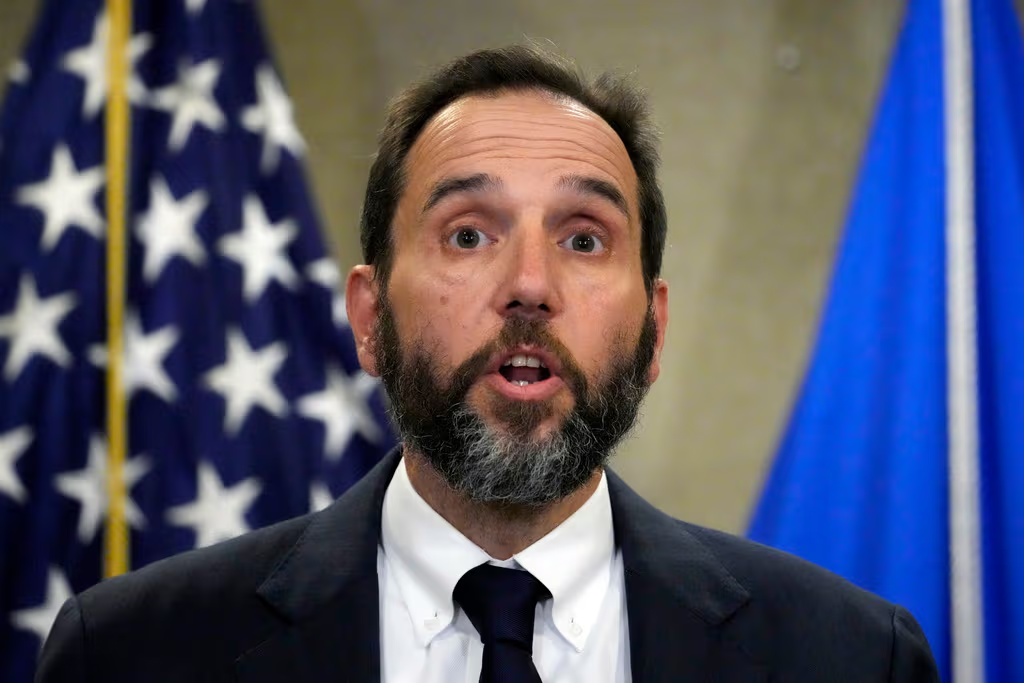Will Trump’s Lawyers in Mar-a-Lago Case Mount Constitutional Challenge to Requirement That They Get Security Clearance?
Like Melville’s Bartleby, the attorneys reserve the right to ‘prefer not to.’

The first pretrial conference in The United States of America v. Donald J. Trump and Waltine Nauta is set for Tuesday, and on the agenda is the plan for defense counsel to secure security clearances so they can fend off convictions on charges related to dozens of classified documents.
Looming over the conference, though, is the hint of a constitutional challenge that the lawyers for Messrs. Trump and Nauta — Stanley Woodward and Sasha Dadan — are floating with respect to the requirement that they procure security clearances. Could that demand, they venture, violate their clients’ Sixth Amendment right to counsel?
That possibility was raised in a filing from those attorneys to Judge Aileen Cannon last week that raised an unusual argument that tied clearance to the Constitution. Even as they touted their compliance they did not preclude the possibility of a posture akin to, say, the mantra of Herman Melville’s creation, Bartleby, from “Bartleby, the Scrivener” — “I would prefer not to” — and demurring on clearance.
Defense counsel wrote to Judge Cannon that they “expressly reserve,” and do not intend to waive, “any of Mr. Nauta’s rights under the Sixth Amendment to the Constitution, including the right to challenge any requirement that defense counsel obtain a security clearance as a condition of their representation.”
Mr. Nauta’s attorneys, then, are marking the argument that the requirement to gain clearance or be excluded from the case is an infringement on the constitutional promise that in “all criminal prosecutions” — understood as those of a felonious nature — “the accused shall enjoy” the “Assistance of Counsel for his defense.”
In a case from 1993, Sullivan v. Louisiana, the justices ruled that the deprivation of this choice entails “consequences that are necessarily unquantifiable and indeterminate” and “unquestionably qualifies as ‘structural error,’” an appellate court is obliged to reverse a conviction. Mr. Woodward appears to be floating an argument that clearance could curtail his clients’ choice.
In United States v. Gonzalez-Lopez, from 2006, the high court widened the right, holding that the Sixth Amendment ordains that the “accused be defended by the counsel he believes to be best,” not just anyone with a law license. This means that the Constitution contemplates choice for the defendant in picking his representation.
To bolster this reservation, Mr. Woodward cites a case from 1999, United States v. bin Laden, which arose at the Southern District of New York. The indictment charges 15 defendants — including the emir — with 267 discrete criminal offenses, including 229 counts of murder arising from Al Qaeda’s bombing of American embassies in Kenya and Tanzania. Two years later, the Twin Towers fell.
During the course of that case, defense counsel requested that the “Government not be given the unfettered power to disqualify their present counsel” if they did not secure necessary clearance. The court entertained that notion, but found that the “procedures governing the clearance process, when combined with the Court’s vigilance in responding to questions of potential abuse,” were satisfactory.
Mr. Woodward’s suggestion comes as Mr. Smith’s team urges Judge Cannon to issue a determination that “all classified documents and information to which the defense has access in this case are now and will remain the property of the United States.” The special counsel also wants to limit Mr. Trump’s latitude to publicly share the details of the classified evidence against him.
Tuesday’s hearing is mandated by the Classified Information Procedures Act, signed into law in 1980. The Department of Justice explains that it “neither adds to nor detracts from the substantive rights of the defendant or the discovery obligations of the government,” but serves to prevent the “unnecessary or inadvertent disclosures of classified information.”
The narrator of Melville’s story — Bartleby’s boss — describes himself as “one of those unambitious lawyers who never addresses a jury.” Mr. Woodward, though, will have to not only address a jury, but persuade it of the innocence of Messrs. Trump and Nauta with respect to the set of classified documents whose secrets are soon set to make their debut, after a fashion, in open court.

